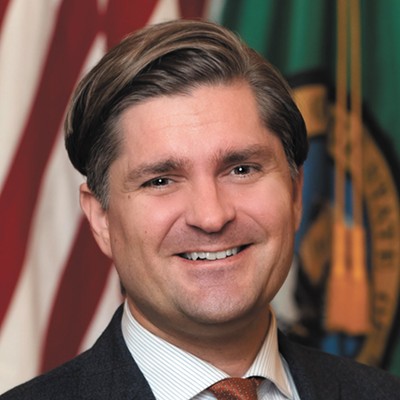
Although it still remains unclear whether freight rail workers will be blocked from going on strike Friday, Sept. 16, Amtrak has already started canceling long-distance routes along freight rail lines. That impacts nearly every Amtrak route in the country outside of the Northeast, where Amtrak operates its own rails.
In Spokane, that means the regular 3:24 am route to Seattle and a 1:15 am route to Montana have already been canceled for Thursday, Sept. 15, and coming days.
Amtrak did not respond to specific questions about how many passengers or trains might be impacted throughout the Pacific Northwest, but said that affected passengers are being contacted and will get free cancellation or rebooking through Oct. 31. Amtrak's Empire Builder, which stretches from Chicago to Seattle (with another fork to Portland, Oregon), saw 433,372 passengers in 2019 and is the most popular long-distance route the carrier operates. That route saw significantly lower ridership in 2021 as the pandemic continued to impact travel plans, with 220,681 passengers for the year.
While passenger trains are getting canceled, the looming rail strike actually involves labor disputes between freight rail companies and employees, some of whom have seen their working conditions significantly worsened by new leave policies.
As the Inlander's Daniel Walters reported in April, at BNSF the new "Hi Viz" attendance policy has created an absurd system for taking any time off. At times, the new points-based system has created unsafe sleeping schedules and an unpredictable work-life balance for the engineers and conductors who operate trains that may be filled with dangerous materials such as crude oil as they travel hundreds of miles across the country.
In a nutshell, the new attendance policy assigns points (e.g. two points for weekdays, four for Fridays or Saturdays, seven for popular holidays, etc.) and gives every employee a bank to draw from. But it takes a long time to build back enough points in that bank to even take a "weekend" (even if that is mid-week), which used to be something union jobs prided themselves on providing for employees.
Freight operators and unions have been negotiating new contracts for months, and while workers still want to see improvements to the time-off policies, it's unclear if lawmakers will step in to prevent the strike.
Local BNSF engineer Shawn Blackburn tells the Inlander on Wednesday, Sept. 14, that it appears Congress might block their strike altogether, which means most of the concerns about rail stoppages, including worries about supply chain issues, may never come to pass. Unions could be pressured or required to accept a deal proposed by the Presidential Emergency Board created to address the bargaining issues.
"We do have a contract negotiation, which is pretty insulting to what labor actually wants and very much in line with what capital wants," Blackburn says. "[Lawmakers in Congress] already proposed a bill that will force us to go back to work and accept the recommendations."
Meanwhile, though, Blackburn says BNSF has been alerting shippers, warehouses and manufacturers that they may not be able to expect shipments next week, which is also driving political pressure on Congress.
Blackburn says the whole thing could be resolved if workers got a reasonable attendance policy again.
"We just want our time off back," Blackburn says. "Me and everybody that I know, that I work with, would give up any pay raise and adjustments to medical, dental or vision to get our time off back."
Should the strike be allowed to go forward on Friday, there will be other complications on top of delayed packages and supplies. Workers like Blackburn, who says he's scheduled to run a train Wednesday evening toward Montana, could get stranded at their hotels if their strike prevents the shifts they'd be scheduled to come back home on in two days.
"I could possibly get stuck at the hotel if we do get the pleasure of going on strike," Blackburn says. "It's always a shift when we're coming back, so if no trains are running, it could be a long stay."
BNSF did not immediately respond to a request for comment.

























